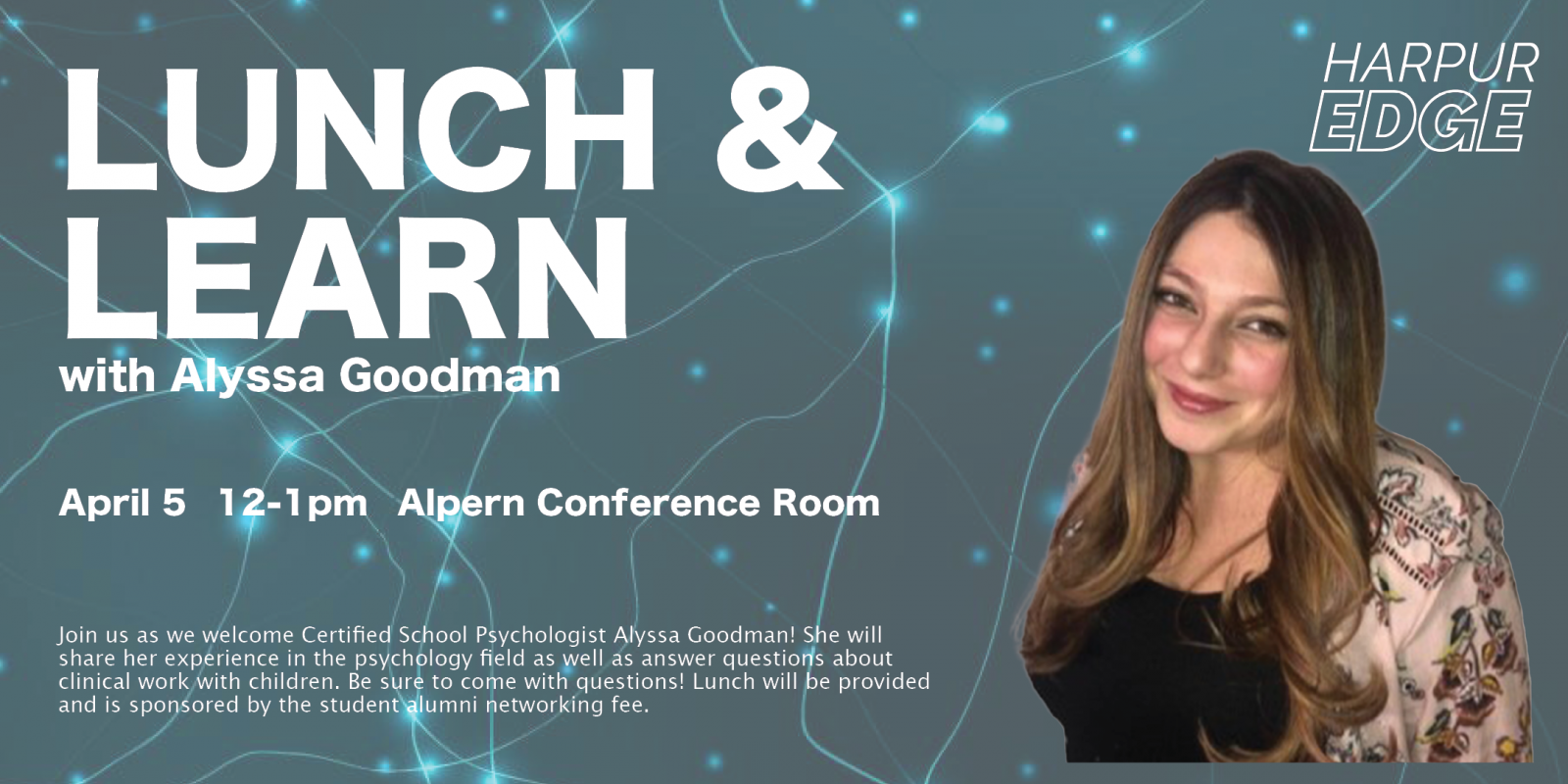Guiding light: A career as a school psychologist offers rewards and challenges
Psychology alum Alyssa Goodman ’18 shares her experiences at Harpur Edge

Alyssa Goodman has been bitten and scratched on the job. Sometimes, she’s called names — but getting through to the children makes everything worthwhile, she said.
The 2018 Binghamton University alumna spoke to undergraduate students about the challenges and victories of being a school psychologist on April 5 in the Alpern Conference Room on campus. A psychology major at Binghamton, she reassured students that they aren’t bad people if they can’t handle the weight of that kind of career.
“When we think of school, we often just think of academics,” she said. “But for some students, school looks like learning about life skills.”
Goodman specializes in working with autistic individuals, usually children. Her work at Family of Kidz includes therapy, diagnostic evaluations and behavioral intervention with parents and teachers.
“School psychologists apply expertise in mental health, learning and behavior to help children in youth succeed academically, socially, behaviorally and emotionally,” she said.
Harpur Edge director Erin Cody opened the event and acknowledged the importance of student relationships with alumni at Binghamton. Harpur Edge offers programs and resources for students to enhance their lifelong growth through skill-building activities.
“We have these lunch-and-learn opportunities because we believe that relationships with alumni are one of those competitive edges that we deliver to each of you,” Cody said. “Thank you for engaging and refining your own unique edge.”
Goodman reminisced on her time at Binghamton, when she lived in the Newing residence hall and didn’t have a welcome center or food trucks on campus. She received her Master of Science in 2022 at St. John’s University, earning her school psychologist certification while working toward her doctorate.
Junior Caley Maysonet, an integrative science major, helped to coordinate the event. A peer counselor intern at Harpur Edge, Maysonet asked Goodman about the challenges of working with children.
“Parents can be very difficult, but they are so important to work with,” Goodman said. “I think people underestimate the role that parents play in school and in therapy. Parents need to be aware of the goals and need to be involved.”
Goodman finds that parents can be busy or overwhelmed, especially in lower-income communities, which can make it difficult to get them involved. Higher-income communities, on the other hand, can have a problem with parental entitlement.
“You can have a student whose IQ is average and there are no academic weaknesses, but their parents want extended time for tests and an IEP. Sometimes they will demand it, and sometimes they will get it,” she said.
Children also can be challenging and even defiant, depending on their age. If a child struggles with significant behavioral challenges, a psychologist may get hurt, Goodman warned; she has experienced that herself, including having her hair pulled. Other times, children may simply not show up to therapy.
Goodman said the rewarding parts of school counseling help provide reassurance and build confidence. She used her experience with one particular child to exemplify trust-building and the growth of a harmonious relationship, which are some of the most rewarding parts of her job.
“Up until last week, he told me he hated me multiple times every single session. He called me an idiot and screamed at me,” Goodman said. “Finally, last week, he asked me for advice, which was groundbreaking.”
She advised interested in school counseling or similar careers to work with children, perhaps by volunteering at a school.
“Do anything you can to get some experience. Make sure you feel like you have the patience,” she said. “You are not a bad person if you can’t do this job; it’s not for everybody.”
